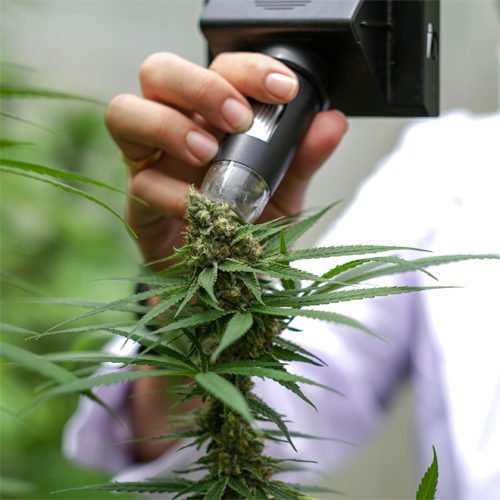Decatur Watershed Project
The need for sustainable soil preservation and erosion repair has become a focal point of conversation in recent years. As a result, some towns have incorporated hemp as a way to help improve the quality of life for their residents. This is the case for the city of Decatur in Illinois, whose water quality improvement plan is an endeavor we should all keep an eye on.
According to a press release, the USDA Natural Resources Conservation Service issued a $9.8 million grant to reduce nitrates and sediment critical watershed areas including the Mississippi River Basin Critical Conservation Area. The press release states, “The Program aims to reduce up to 50% of the sediment and 20% of the nitrate nitrogen annually flowing into Lake Decatur, which costs the city tens of millions of dollars to dredge every few years.”
In a similar press release from the City of Decatur, city officials announced, “Lake Decatur Water Quality Initiative’s objective is to collaborate with the USDA Natural Resources Conservation Service and 53 partners to help farmers and landowners adopt ClimateSmart practices. The goal is to achieve measurable and quantifiable improvements in water quality.”
This five year pilot project will partner with St. Louis-based hemp company TigerFiber Hemp to plant 2,000 acres of fiber industrial hemp along key areas as a soil remediation tactic. According to the press release, the COO of TigerFiber was quoted as saying, “We want to plant this hemp in areas where it can be seen from the road by farmers driving past.”
However, this watershed and resource preservation project is not a new revelation. For years, researchers and farmers have teamed up to find a way to preserve our natural resources for future generations. Hemp has been explored as a remedial crop for multiple problems, including erosion, weed prevention, soil contamination from pesticides, herbicides, and even worse pollutants.
Current research has shown hemp to be a soil preserving cover crop. According to Rodale Institute, hemp helps strengthen the soil while absorbing heavy metals and other harmful contaminants. After a 3 year experiment exploring the use of hemp as a way to repair soil and the quality of crops designated for human and animal consumption planted in the repaired soil.
The results of the Rodale Institute study found that soybean and wheat yields increase after hemp was used for soil repair. Their results also found, “Nitrogen availability appears to allow hemp to overcome weed competition at wider row spacing, while weeds appear to outcompete hemp in wider row spacings when nitrogen is limited. Higher availability of nitrogen increases hemp grain yield at wider row spacing.”
Similarly, hemp has been used to absorb radiation in the soil around the Chornobyl nuclear power plant. While the use of cover crops to repair soil is not a new idea, hemp has seen better success than other alternatives. According to the Global Hemp Association, “Slavik Dushenkov, a research scientist with Phytotech, one of the organizations behind the hemp plantings, stated that “hemp is proving to be one of the best phyto-remediative plants we have been able to find”.”
Research is still ongoing, and more projects are beginning every day. As farmers look to diversify in the hemp industry, fiber production has become a popular option due to its versatility and demand. Beyond its use as a remedial cover crop, hemp can also be used to create everything from clothing to paper and even housing.
The projects in Chornobyl and from the Rodale Institute have laid the foundation for current endeavors like the Decatur watershed project. The Illinois based project is just one of what will surely become the standard in soil repair and erosion prevention. The more we can repair the resources we have, the greater the success of preservation will be for future generations.





